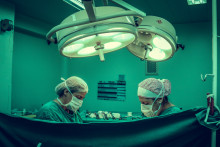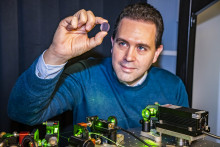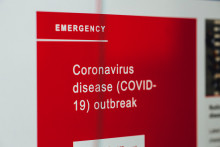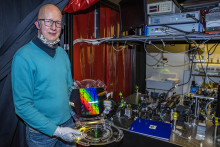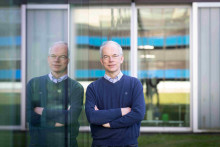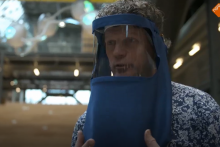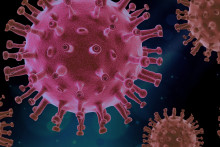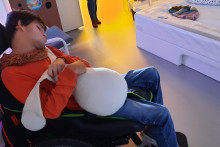- EN
- NL
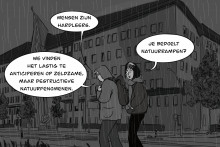 Aan de borreltafel
Aan de borreltafel‘Ik vind het belangrijk dat wat de ander onthoudt, correct is’
‘Aan de borreltafel’ is een rubriek over wetenschap. Wetenschapsjournalist Enith Vlooswijk praat met én tekent over UT-onderzoekers, die vertellen over hun vakgebied en de misvattingen die hierover bestaan. In deze elfde aflevering: Maarten van Aalst, hoogleraar ‘Spatial resilience for Disasters Risk Reduction’ aan de faculteit ITC.
- EN
- NL
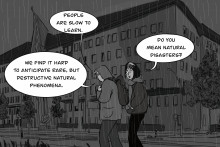 Aan de borreltafel
Aan de borreltafel‘I find it important that what the other person remembers, is correct'
‘Over a pint’ is a series about science. UT researchers talk to science journalist Enith Vlooswijk about their field and the misconceptions that exist about it. Enith turns their input into writing and drawings. This eleventh episode: Maarten van Aalst, professor for ‘Spatial resilience for Disasters Risk Reduction’ at the ITC Faculty.
- EN
- NL
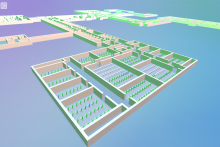 Science
ScienceUT students build Covid simulation of Horst
How does the coronavirus spread in Horst? This question is answered by four UT students using a computerized simulation of the building. 'Simple things like a face mask, social distancing and a lower building capacity make a big difference.'
- EN
- NL
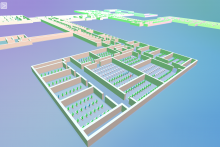 Science
ScienceUT-studenten maken coronasimulatie voor Horst
Hoe verspreidt het coronavirus zich in de Horst? Deze vraag probeerden vier UT-studenten aan de hand van een computergestuurde simulatie van het gebouw te beantwoorden. ‘Simpele dingen als een mondmasker, afstand houden en een lagere gebouwcapaciteit maken een groot verschil.’
- EN
- NL
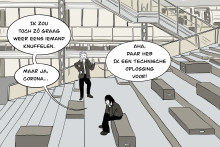 Aan de borreltafel
Aan de borreltafel‘De techneut en de arts hebben een ander perspectief’
‘Aan de borreltafel’ is een rubriek over wetenschap. Wetenschapsjournalist Enith Vlooswijk praat met én tekent over UT-onderzoekers, die vertellen over hun vakgebied en de misvattingen die hierover bestaan. In deze tiende aflevering: Françoise Siepel, universitair docent bij de EWI-vakgroep Robotics and Mechatronics.
- EN
- NL
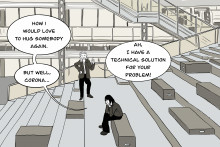 Over a pint
Over a pint'The technician and the doctor have a different perspective'
‘Over a pint’ is a series about science. UT researchers talk to science journalist Enith Vlooswijk about their field and the misconceptions that exist about it. Enith turns their input into writing and drawings. This tenth episode: Françoise Siepel, assistant professor at the EEMCS Robotics and Mechatronics group.
- EN
- NL
 Over a pint
Over a pint'The technician and the doctor have a different perspective'
‘Over a pint’ is a series about science. UT researchers talk to science journalist Enith Vlooswijk about their field and the misconceptions that exist about it. Enith turns their input into writing and drawings. This tenth episode: Françoise Siepel, assistant professor at the EEMCS Robotics and Mechatronics group.
- EN
- NL
 Aan de borreltafel
Aan de borreltafel‘De techneut en de arts hebben een ander perspectief’
‘Aan de borreltafel’ is een rubriek over wetenschap. Wetenschapsjournalist Enith Vlooswijk praat met én tekent over UT-onderzoekers, die vertellen over hun vakgebied en de misvattingen die hierover bestaan. In deze tiende aflevering: Françoise Siepel, universitair docent bij de EWI-vakgroep Robotics and Mechatronics.
